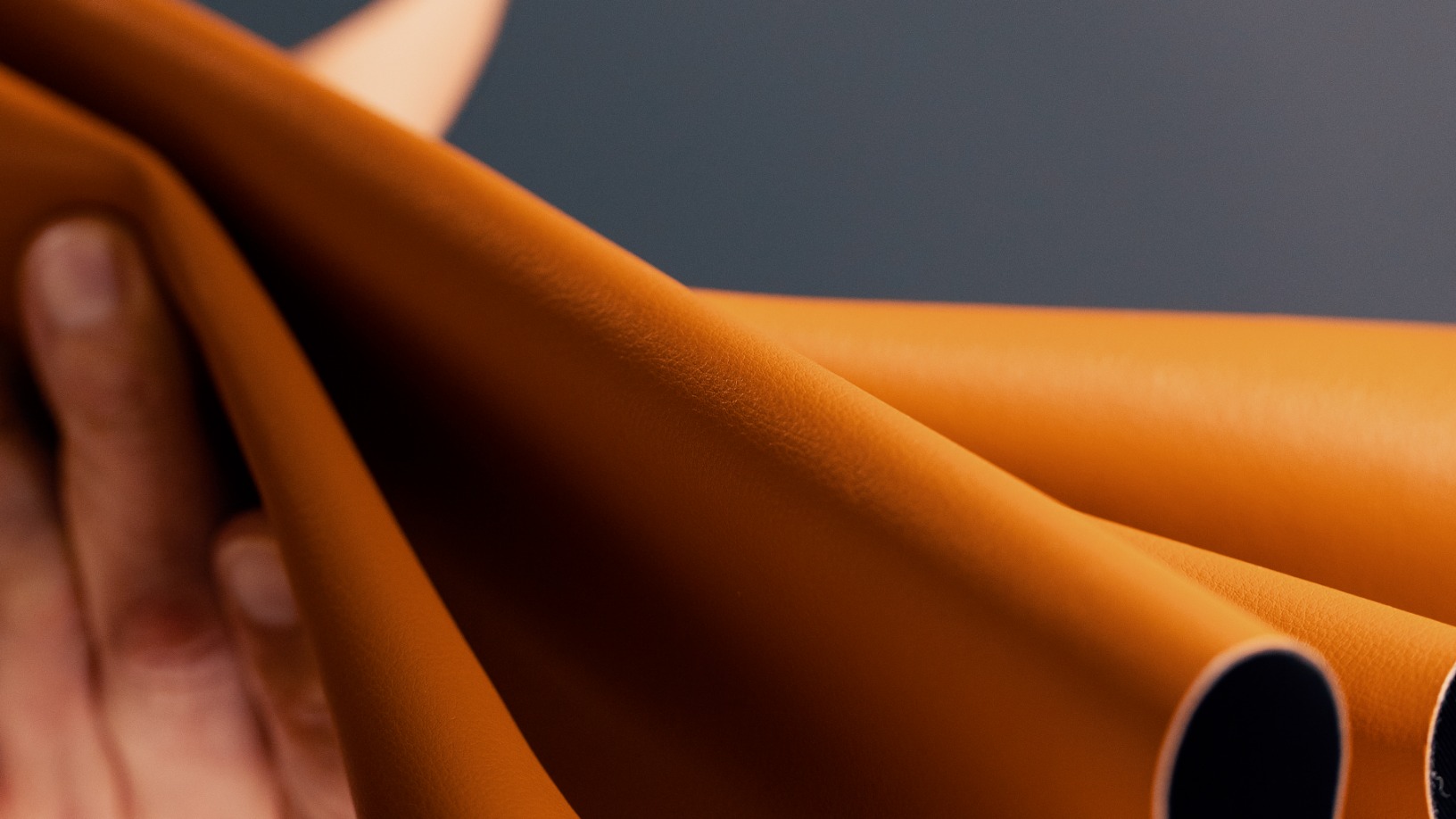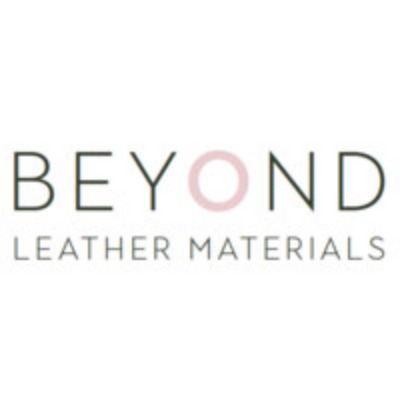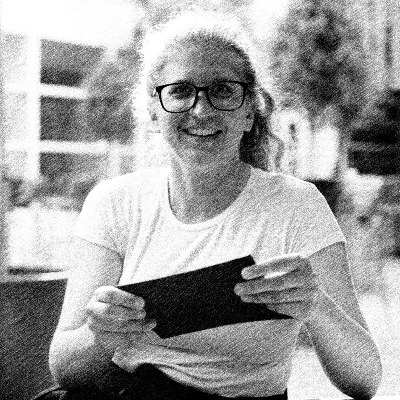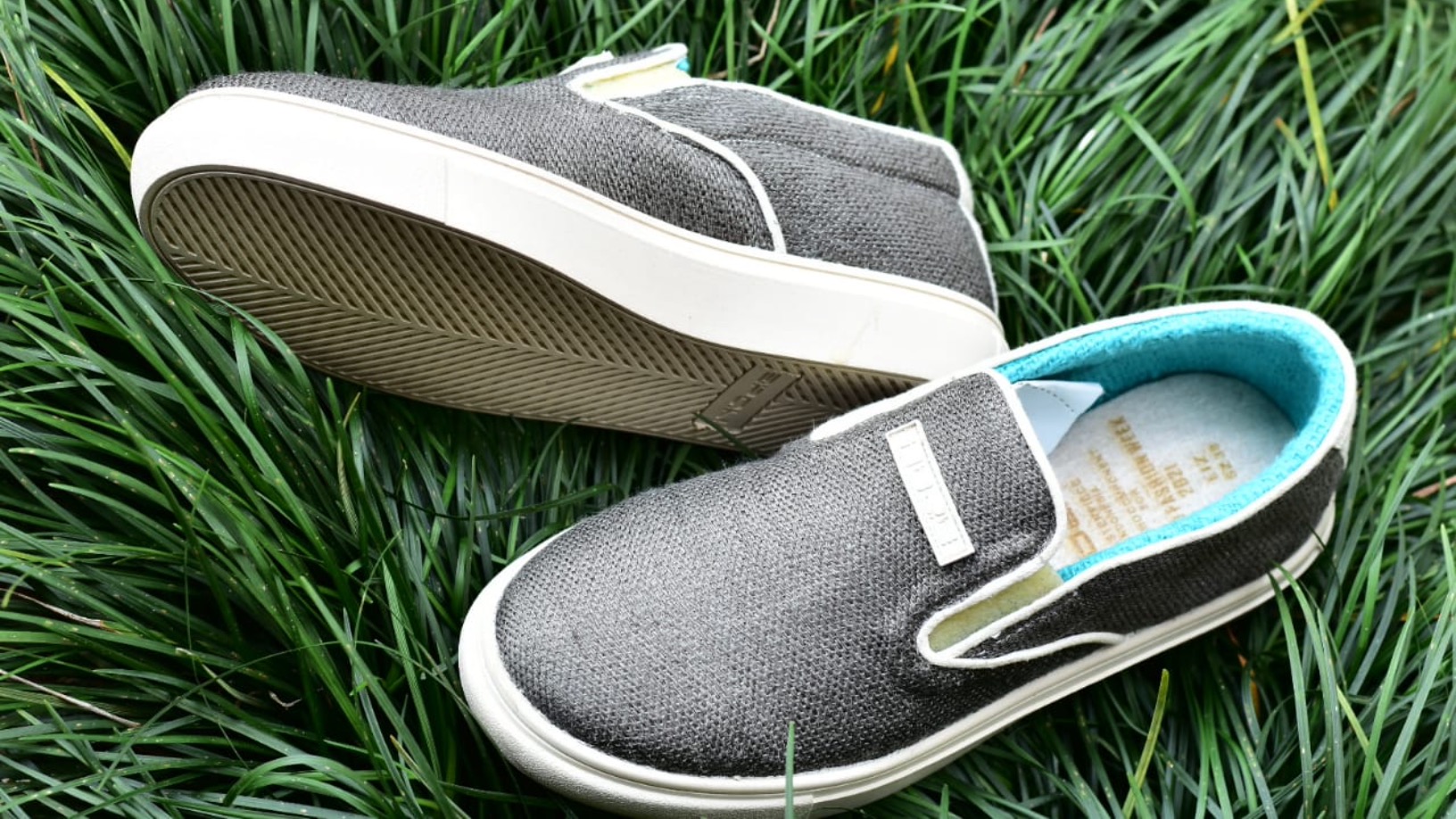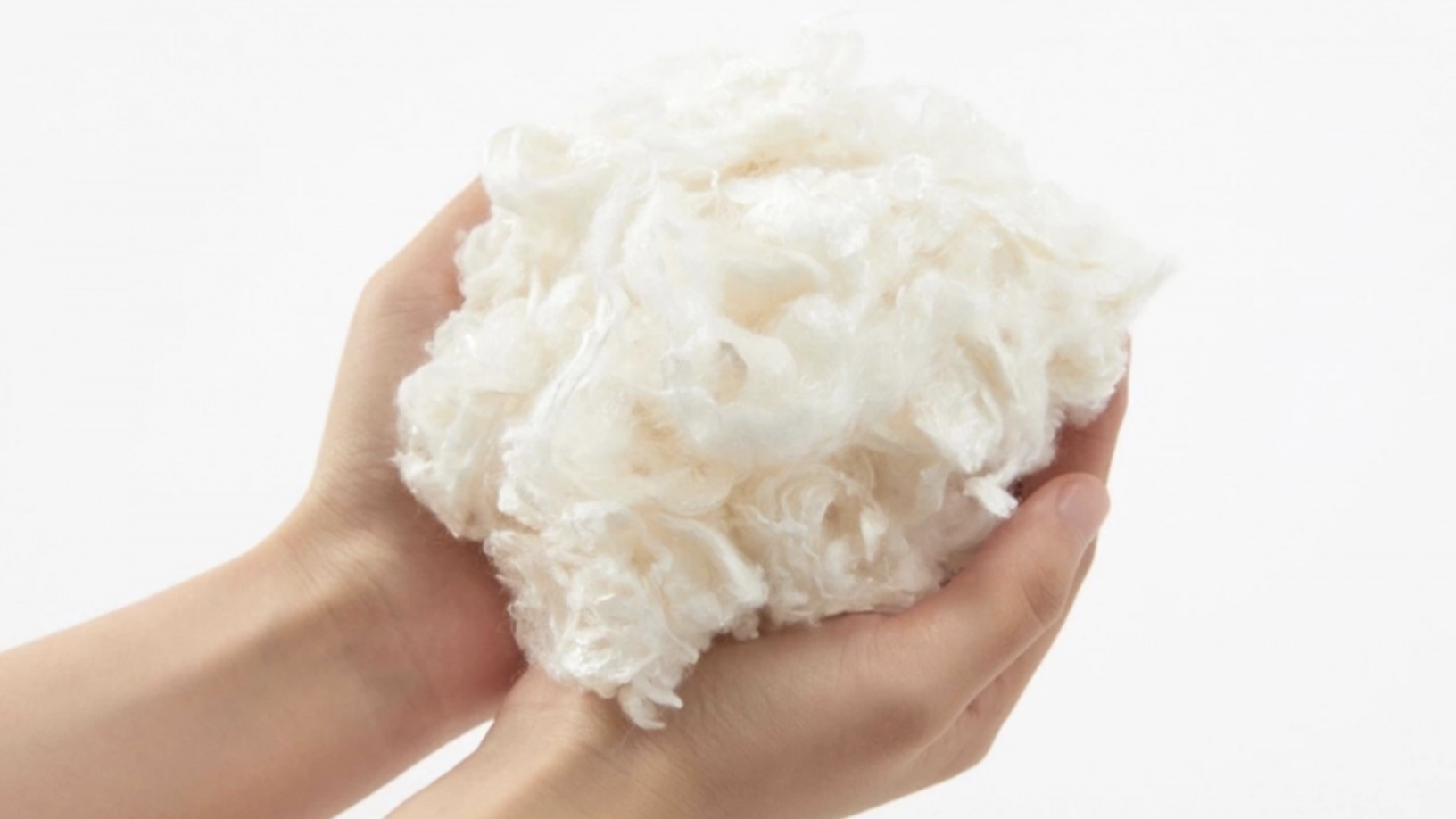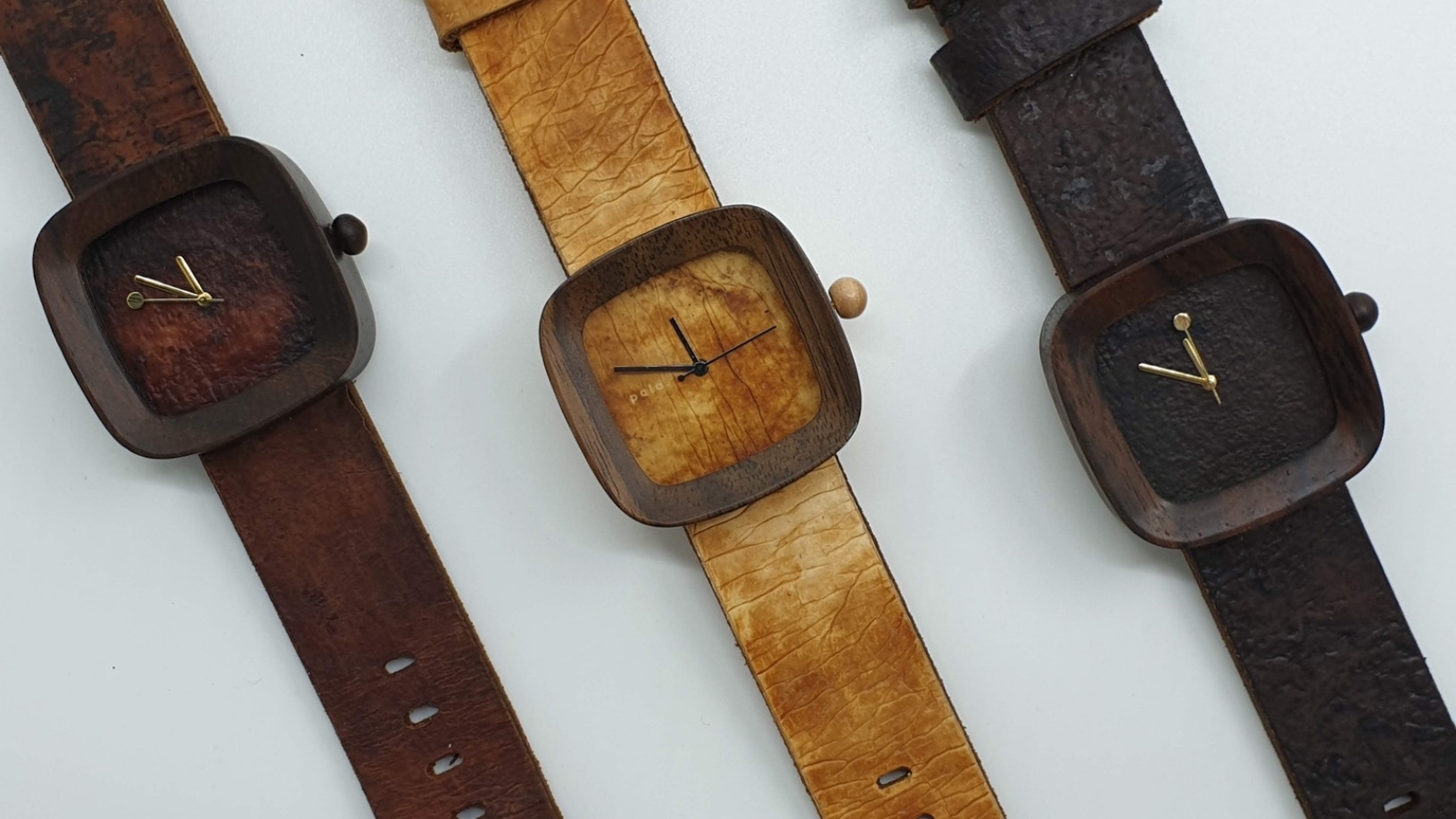Faced with animal welfare and meat production environmental issues, the $100bn leather and leather goods industry is urgently seeking more sustainable alt-leather solutions to meet the demand from eco-conscious fashion houses and consumers. The traditional leather tanning process, climate change experts say, is also pollutive and resource-intensive, adding further pressure for change.
Armed with €1.1m seed funding, Danish startup Beyond Leather Materials joins a growing cohort of vegan material biotechs to offer plant-based leather. Targeting corporate clients like textile and apparel manufacturers, the firm is launching in 2022 its vegan apple leather brand Leap, an acronym for LEftover APples (leftover apples). Produced mainly from upcycled apple waste, the faux leather material is as flexible, tactile and durable as animal leather.
“Leap’s environmental benefits are huge compared with traditional leather production,” co-founder of Beyond Leather Materials Hannah Michaud told CompassList. “Our material can be produced in one day while emitting 85% less CO2, using 99% less water, and using waste as our main ingredient.”
Michaud, who pioneered the development of the apple-based leather, founded the startup with German hotelier Mikael Eydt in 2017 in Copenhagen, and received financial backing in July 2020 from the Jensen Group Investment Fund. The Jensen Group owns an international garment finishing company that is a potential user of sustainable textiles like Leap. Other investors in the seed funding round included Dutch sustainability accelerator-VC Rockstart and Danish state investment fund Vækstfonden.
Fully recyclable by 2024
An American, Michaud was a fashion design intern studying in Denmark when she came up with the idea for a vegan alt-leather material. “The inspiration for Leap came in a biomimicry class during my sustainable design studies at the Copenhagen School of Design & Technology in 2016, when I was encouraged to look at waste in order to create something new and valuable,” she said. A year later, upon graduation, Michaud teamed up with Eydt to set up Beyond Leather Materials ApS.
The first prototype of Leap apple leather was finally launched in early 2019. “Using plant-based waste as our raw material presented many challenges, from making the material water-resistant to achieving leather-like durability,” Michaud said.
“To increase the efficiency of the production, we looked into different existing industrial food processing techniques and industrial paper production for inspiration; the key being: we don’t have to invent the wheel, we take from existing technology and build our own process from it.”
Our material can be produced in one day while emitting 85% less CO2, using 99% less water, and using waste as our main ingredient
According to the startup, Leap is easily recyclable, making it the most sustainable leather alternative available today. The leather will also become entirely composed of recyclable materials by 2024, from 80% currently. It comprises three component layers that can be disassembled for recycling at the end of its use life.
The largest layer is a composite made from recyclable natural rubber and upcycled apple waste discarded from cider and juice factories. Apple waste was selected because of its high content of short fibers and polymers which can be primed to produce a strong, yet flexible texture, with similar leather tactile and esthetic characteristics.
The apple waste and rubber is combined with a twill base inner layer comprising certified organic cotton and Tencel fibrous material made from wood pulp to form the outer layer of the faux leather. However, biomaterials alone cannot be used to replicate similar textures and variety of colors of animal leather. Hence, Leap has to be coated with a mixture of bioplastic and petroleum-based plastic.
“All of the fossil fuel-based ingredients are in the coating only, so Leap is not a hybrid material,” Michaud said.
The team also consulted extensively with potential clients including fashion companies, designers, leather producers and even car manufacturers to customize the Leap material to their technical and esthetic requirements. In 2020, Eydt extended his business development role to become the full-time CEO, with Michaud as Chief Creative Officer. Since then, six more full-time staff have joined the startup, which won an international climate change Clim@ 2020 competition, sponsored by impact investor, the Green For Growth Fund.
Besides reducing food waste, Leap is also completely vegan with only half of its protective outer coating ingredients derived from petroleum plastic derivatives. “We aim to replace the current coating in a way that can still deliver the desired leather-like qualities without the use of fossil fuel-derived plastic, based on the company's philosophy of using waste as a core ingredient," Michaud said.
Circular fashion boom
About 70% of Leap is made from upcycled apple byproducts like apple skins, cores, stems and seeds which are sourced from a small local juice maker that can currently supply 500–600 tons annually. Only 5 kg of apple pulp is needed to make 1sqm of apple leather sheet, according to the company. In Europe, fruit waste from agro-processing is quite widely available at around 600,000 tons annually, most of which are simply discarded as waste.
We don’t have to invent the wheel, we take from existing technology and build our own process from it
Leap is just one example of the ever-expanding list of innovative materials that can used to produce more sustainable fashion and apparel products. Besides apples, other bio-based ingredients used by market competitors include mushrooms, bacteria, milk waste and unwanted textiles. Apple leather has existed since it was invented in Italy in 2004. Another direct competitor for Leap is Frumat, an Italian apple peel-based leather substitute developed in 2009. Frumat has a slightly lower apple content and is currently more complex to reprocess compared with Leap.
According to scientific research, the carbon footprint of bovine leather ranges from 65–150 kg of CO2 per sqm based on an annual production of over 2bn sqm. However, by far the most contaminating part of leather production is the tanning process. Tanning just 1sqm of leather will generate 16,500 liters of toxic wastewater, according to a UN report on Leather Carbon Footprint. The wastewater is expensive to treat because it contains chromium, sulfates and pathogens.
Most of the tanning work also occurs in cheap producer nations with little environmental protection enforcement. As a result, the local water sources become contaminated by the toxic wastewater, damaging the health of local people and animals. A recent study of Bangladeshi tannery workers found that almost three-quarters have suffered from gastrointestinal problems and a half have asthma issues.
“I think the fashion industry is moving in the right direction but still has a lot of ground to cover,” said Michaud. “There are many companies that still do not understand that the consumer is demanding transparency and that greenwashing can ruin your business.
"I think the biggest change, not only in fashion but in several industries, will be that people will get more educated about the products they buy, and the raw materials used in those products and will push for a change.”
